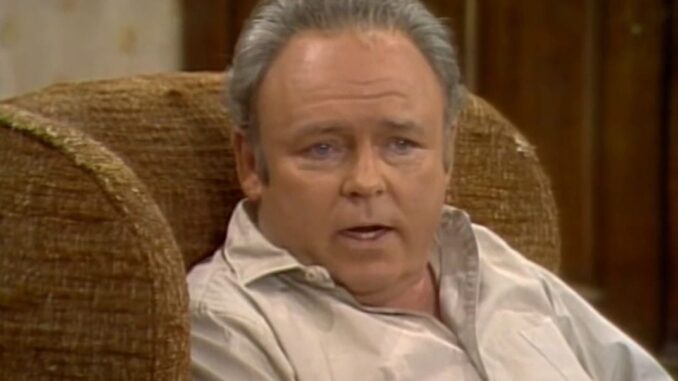
Norman Lear, Pioneering TV Producer of ‘All in the Family’ and ‘The Jeffersons,’ Dead at 101
Boundary-breaking iconoclast behind ‘Sanford and Son,’ ‘Maude,’ ‘Good Times,’ and more addressed — and smashed — social taboos
Norman Lear, the groundbreaking TV producer who smashed boundaries with politicized sitcoms such as All in the Family, helped diversify network television with shows The Jeffersons and Good Times, and used the half-hour comedy to address social issues and taboo, hot-button topics , died Tuesday at his Los Angeles home. He was 101. Lear’s reply, Lara Bergthold, confirmed his death to The New York Times.
“Norman lived a life in awe of the world around him,” his family wrote in a statement. “He marveled at his cup of coffee every morning, the shape of the tree outside his window and the sounds of beautiful music. But it was people — those he just met and those he knew for decades — who kept his mind and heart forever young.” Lear’s family added that he was “surrounded by his family as we told stories and sang songs until the very end.”
Before Lear and his revived the series All in the Family, network sitcoms had as much edge as a butter knife — and Lear himself was more than happy to take credit for changing that. “Before All in the Family, there were a lot of families on television, but the biggest problem they faced was Mom dented the fender or the boss was coming to dinner and the roast was ruined,” Lear once said. “America had no racial problems, no economic problems. Women didn’t get breast cancer; Men didn’t get hypertension.”
All those issues and more were addressed in the shows Lear developed, produced, and sometimes written. All in the Family, Maude, The Jeffersons, Sanford and Son, and Good Times, among others, brought political and social awareness to TV. As Robert Redford once said of Lear, “He brought humanity, edge, humor, and vulnerability into the mainstream, and we owe him a great debt for that.”

Born July 27, 1922, Lear endured an early childhood trauma: When he was nine, his father, Herman, was convicted of selling fake bonds and sentenced to three years in prison. After briefly attending Boston’s Emerson College, Lear dropped out and joined the Air Force during World War II, flying 52 combat missions. He ventured into public relations afterward, but comedy writing would prove to be his forte. In the 1950s, he wrote for variety series like The Colgate Comedy Hour and eventually started a production company, Tandem Productions, with director Bud Yorkin. Lear’s screenplay for Divorce American Style, cowritten with Robert Kaufman, was nominated for an Oscar in 1967.
But Lear was destined to change TV. In 1968, he adapted a British sitcom, Till Death Us Do Part, for American TV. The show was based around the bigoted head of a household who reminded Lear of his own father. After knocking around as a pilot for ABC for two years, the network dropped the show (once called Justice for All), but in 1970, CBS, eager to draw in younger viewers after dropping more wholesome sitcoms like Green Acres, picked it up.
The first episode of the renamed, recast All in the Family — starring Carroll O’Connor as Archie Bunker; Jean Stapleton as his long-suffering wife, Edith; Sally Struthers as their daughter, Gloria; and Rob Reiner as her boyfriend and later husband, Mike — begins with a disclaimer: “The show you are about to see is All in the Family. It seeks to throw a humorous spotlight on our frailties, prejudices, and concerns. By making them a source of laughter, we hope to show — in a mature fashion — just how absurd they are.”
What followed — arguments about Black Power, bits of raunchy humor, and sex jokes — was unlike anything on TV at the time, and it never let up: Brilliantly played by O’Connor with equal parts blush and vulnerabilities, Archie, a proud, politically incorrect, antagonized his family (and hippie son-in-law) about race, the Vietnam War, and race relations. Initially controversial, All in the Family became a phenomenon — watched by over 50 million viewers and winning 22 Emmys during its run from 1971 to 1979. (The show was renamed Archie Bunker’s Place and lasted another four seasons.)
Lear was sometimes asked if the series’ popularity had to do with attracting viewers who were just like Archie. “Maybe they continue to agree with Archie Bunker — you can’t change people’s minds, but you can get them to think,” he replied. Lear himself had another explanation for the show’s success — that dispelled one particular TV myth.